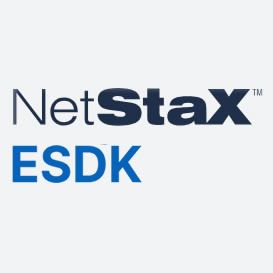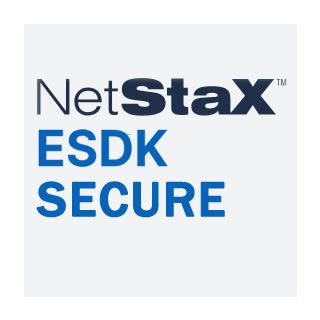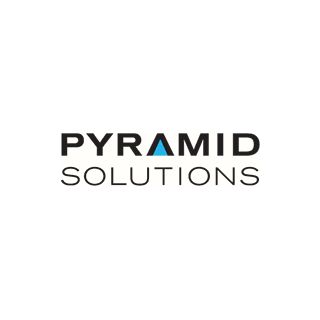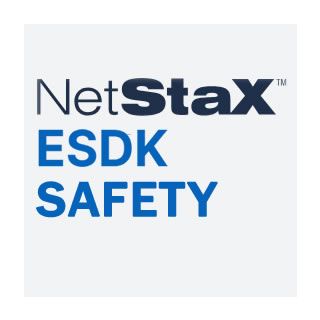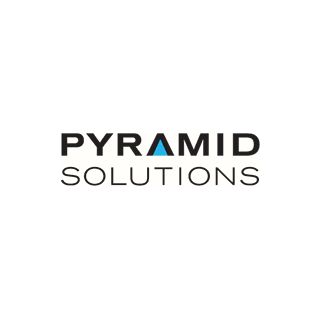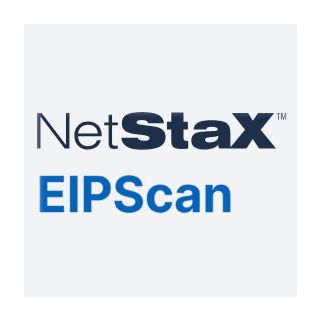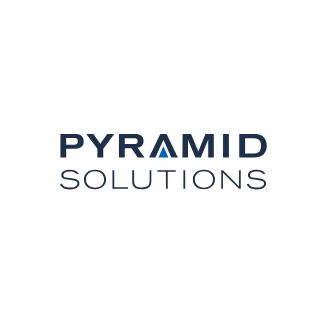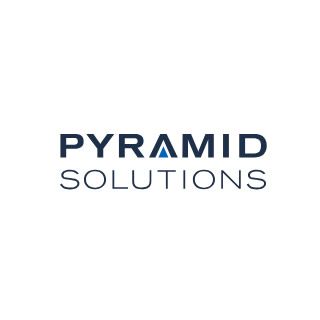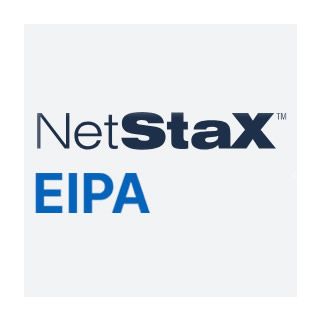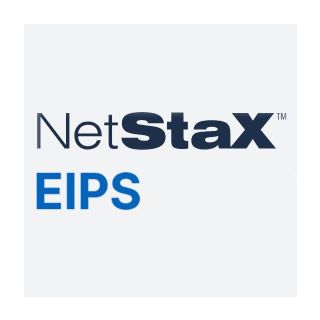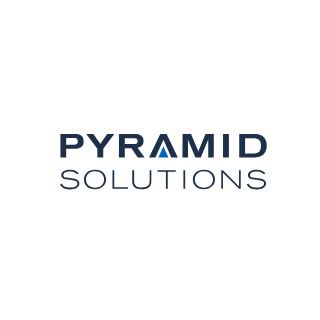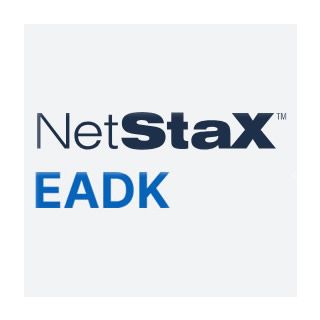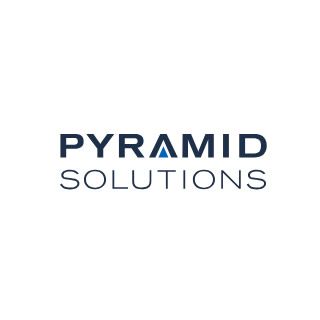Utilizziamo i cookie per rendere migliore la tua esperienza di navigazione. Per rispettare la nuova direttiva sulla privacy, è necessario chiedere il tuo consenso per impostare i cookie. Per saperne di più.
How it Works
Version 5.5.0 – Released January 31, 2025 – Tested with ODVA CT21
Our ESDK provides I/O server, I/O client, message server, and message client functionality along with an Application Programming Interface (API) for using Common Industrial Protocol (CIP) over standard Ethernet. It interfaces with your product’s application software and socket level TCP/IP interface.
The ESDK stack provides a logical and manageable API for interfacing to your application code and utilizes the sockets interface of your products TCP/IP stack for TCP and UDP messaging.
The ESDK Scanner Stack connection configuration can be performed locally via the stack API or via the network using the included Connection Configuration Object (CCO). This allows external tools to configure the scanner remotely.
The ESDK Stack has been successfully implemented across many platforms with an OS or no OS.
It comes with 12 months of download access to the latest version and built in phone/email tech support.
Additional Service options are available to assist you with EtherNet/IP requirements, design, ESDK Stack integration, pre-conformance testing, and more.
Pyramid’s ESDK is distributed under a royalty free software license agreement.
Supported/Included Objects and Features
- Message router
- Connection manager
- CIP Security
- Port
- File object
- EtherNet link
- TCP/IP
- Connection configuration object
- QOS
- DLR***
- CIP Sync****
- Assembly
- Identity
- Modbus translator
- Class 0 support
- Energy object
- LLDP objects
- User defined objects
***Configuration object only. DLR Stack and Switch hardware not included
****Configuration object only. IEEE 1588 stack not included
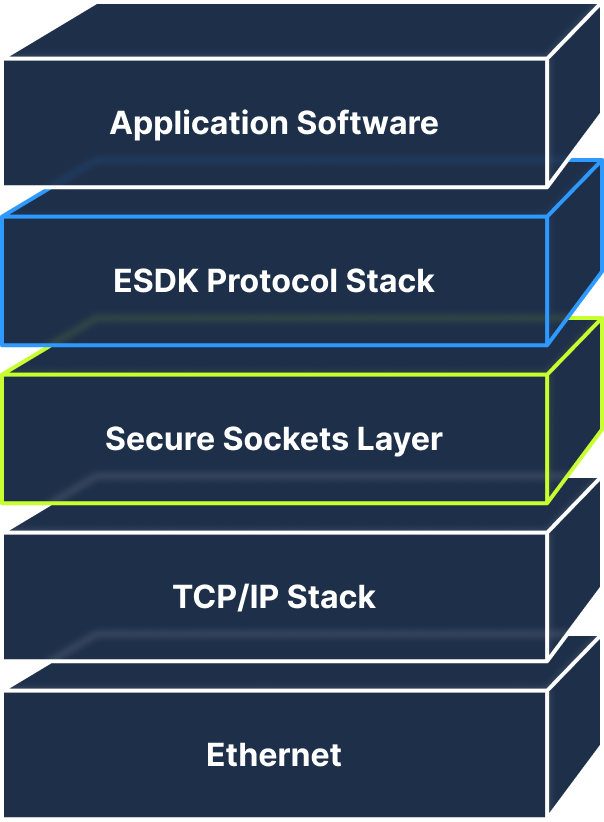
Optional ESDK add-ons
We also offer add-ons to address your specific needs, along with services including consulting, implementation, and support to ensure you maximize connectivity.
Features
- Version 5.5.0
- Tested with ODVA CT21
- Supports
- TCP/IP object revision 2
- Ethernet Link object revision 4
- “Big 12″ Diagnostics
- Identity object revision 2
- Added Identity object Catalog Number (21) and Manufacture Date (22) attributes as standard attributes
- SetIdentityExplicitProtectionMode API to allow the application to control the explicit Protection Mode
- Assembly object revision 3
- Full support for Dynamic assemblies
- Flexible so users can specify the number of connections, requests, etc. from build time parameters
- Includes sample STC file for ODVA Conformance Test
- ESDK-SECURITY feature updates
- ExDK-SAFETY option introduced as of v5.2
Components
- EtherNet/IP Scanner Class protocol stack ‘C’ Source Code designed for portability
- ESDK Scanner DLLs (32 & 64 bit) with C++ function call API, C# API for Windows / .NET applications
- ESDK Getting Started, Software Reference Manuals, and Porting Guide
- Scanner Class example code
- Sample Platform files
- Sample EDS files
- Sample SOC files for pre-conformance testing
Compatibility, Resource Utilization, & Management
Compatibility
- Enables EtherNet/IP Scanner Class functionality for your product
- UCMM (unconnected) messaging Client and Server
- Class 3 (connected) messaging Client and Server
- Class 1 (I/O) connection Client and Server
- CIP Security Option Available*
- CIP Safety Option Available**
Resource utilization and management
- All resources initialized at startup
- No dynamic memory or thread allocation
- Stack runs on a single thread
Platform, OS, and TCP/IP stack compatibility and portability
- Every platform specific routine is in a single set of “Platform Files”, simplifying the porting process to other platforms
- Sample Platform Files provided
- Core Stack source is ‘C’ code for portability
- Included 32 & 64 bit DLLs are compatible with Windows 7, 8.x, 10 and 11 for developing Windows and .NET applications
*The ESDK-SECURE package is required and an SSL you provide
**ExDK-SAFETY-ESDK Source Code Option to enable the ESDK stack to work with HMS/IXXAT’s CIP Safety solution purchased separately
Tecnologix offre supporto gestito direttamente dal Team di sviluppo.
Non esitare a metterti in contatto con i nostri esperti.
Basta chiedere qui



